STEM and How to foster Inquiry-Based Science Education?
The following workshops were held at the 2017 International Dialogue on STEM Education (IDoS). Lead by experts in the field of STEM education from initiatives around the world the workshops addressed interdisciplinary topics, such as combining STEM education with a variety of subjects, and discussed approaches to inquiry-based learning.
Working Groups Day One
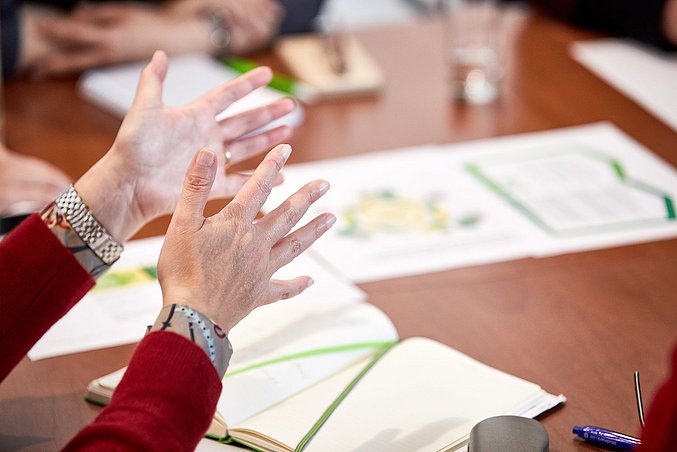
© René Arnold / Stiftung Kinder forschen
Working Group #1: STEM + Education for Sustainable Development (ESD)
Education for Sustainable Development creates opportunities for everyone to develop the knowledge, skills, and values to respond to the sustainability challenges presented by the 21st century and to address issues such as environmental degradation and climate change, consumption and production, biodiversity, cultural diversity, democracy, human rights, and social and economic justice. An appropriate method could be inquiry-based learning, which is indicated also for competencies-oriented STEM lessons. What similarities and differences exist between ESD and STEM? The working group will discuss the opportunities and challenges of STEM + ESD for children, early childhood educators and primary teachers as well as for their institutions.
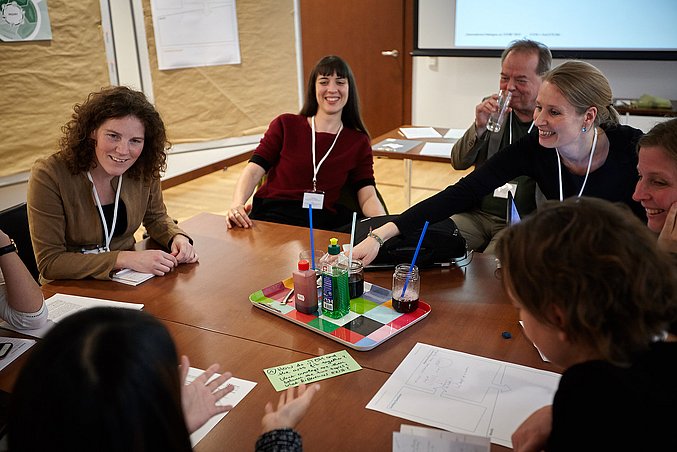
© René Arnold / Stiftung Kinder forschen
Working Group #2: STEM + the Arts
The expanding of STEM to STEAM by including the arts in STEM education is being increasingly discussed. But what does the “A” in STEAM stand for? How do STEM and the arts fit together, and where do they overlap? What does it mean for early childhood education when the arts become a part of STEM? We will discuss the opportunities and challenges when science, technology, engineering, and mathematics meet the arts and come together to drive innovation.
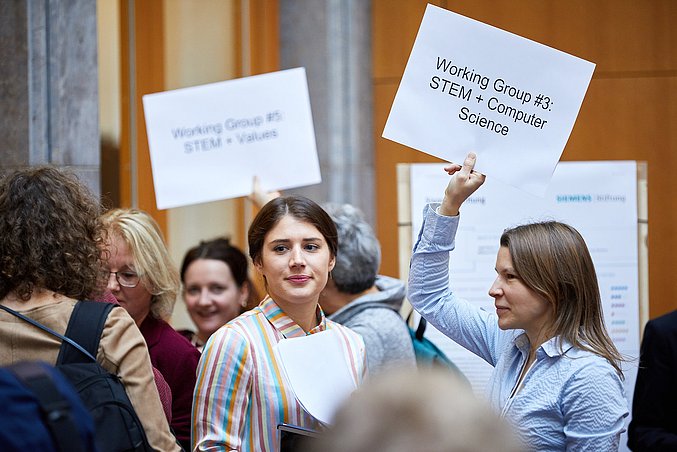
© René Arnold / Stiftung Kinder forschen
Working Group #3: STEM + Computer Science
Education processes in the domains of STEM and computer science are becoming more and more important in order to be capable of acting in our increasingly digitised, complex, and dynamic world. But how do computer science and STEM actually fit together? What role does computer science education play in STEM education in the various countries? How do the various initiatives implement computer science education? How can education and computer science succeed, even with children between the ages of three and ten? What competencies do early education professionals and primary teachers need for this?
The working group will develop answers to these open questions for initial vocational education and continuing professional development in the domains of STEM and computer science.
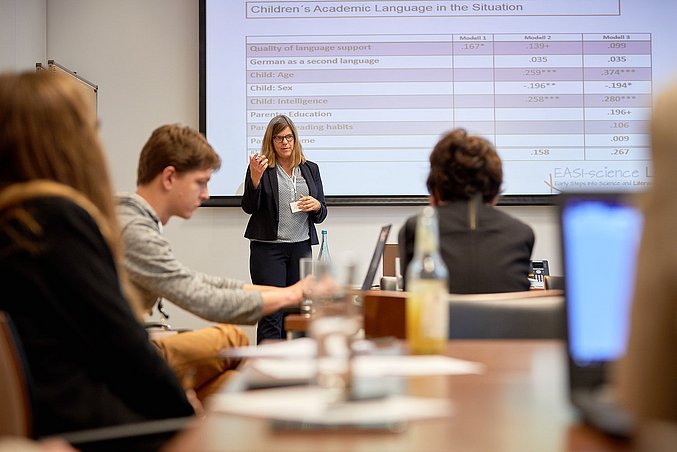
© René Arnold / Stiftung Kinder forschen
Working Group #4: STEM + Language
Language is a basic skill that children need for their journey through life. Many practitioners and scientific experts claim that early STEM education supports children’s language development. They argue that exploration- and inquiry-based learning fosters verbal interactions and therefore children’s language development. But how can STEM and language education be combined? And what effects do STEM educational opportunities have on children’s language abilities? On the basis of practical and scientific examples, the working group will discuss opportunities and challenges of STEM + language for children, early childhood educators and primary teachers, and their institutions.
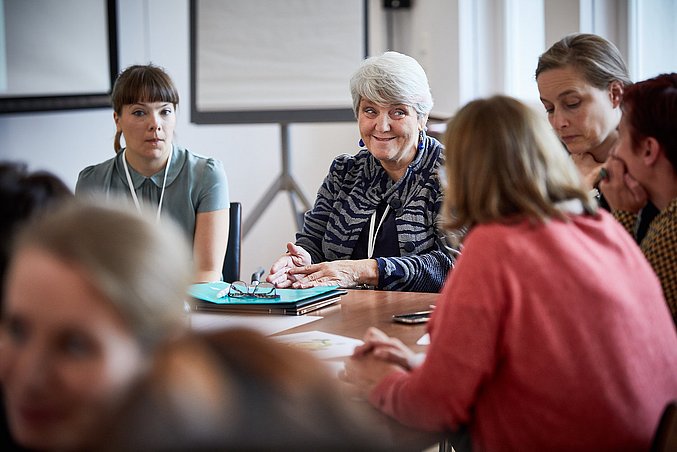
© René Arnold / Stiftung Kinder forschen
Working Group #5: STEM + Values
To think of values and STEM education together is not only wishful thinking. Rather, it is essential if we and our planet are to survive. All global challenges, such as migration, climate change, nutrition etc., are based on STEM-related questions. But how can we encourage children and young people to actively think about their future and to act independently and responsibly towards themselves and society? Service learning has the potential to make STEM education activity-oriented and true to life: By combining cognitive learning and voluntary service for society, it gives children and young people the opportunity to experience values and to further their values education. This working group will give insight into best practice examples and the methodology of service learning and values education and show why service learning is an ideal method for imparting STEM and values.
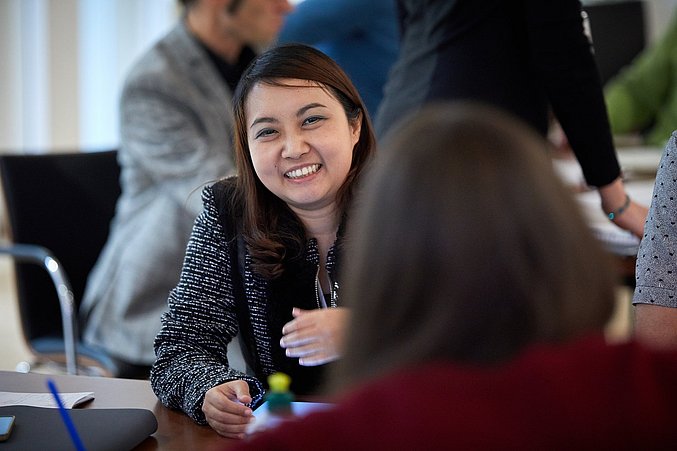
© René Arnold / Stiftung Kinder forschen
Working Group #6: What Skills and Abilities Do Children Need for a Worthwhile Future?
The world around us is changing faster than ever before. Technologisation, digitalisation, climate change, migration, political instabilities: all these phenomena can have consequences for the world of tomorrow that we cannot even imagine today. We don’t know what the world will look like when today’s children begin their professional lives. Are there any skills and abilities that we can be sure children will need in their future? In what way can early STEM education contribute to the development of these skills? The working group will discuss possible skills and abilities that children will need in the future and how these skills can be fostered by early childhood educators, primary teachers, and initiatives.
Working Groups Day Two
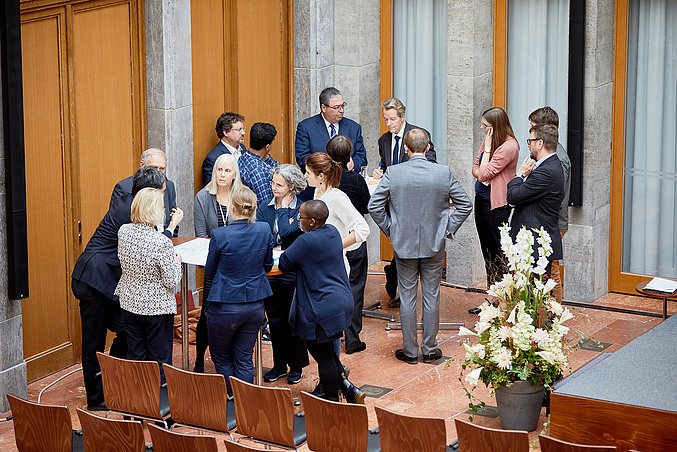
© René Arnold / Stiftung Kinder forschen
Working Group #1: Pedagogic Approaches
Science/ STEM education at pre-primary and primary level is often based on science curricula that focus on promoting methodological competence, a scientific approach, and scientific literacy in experimental settings. How do we ensure that our concepts of early STEM education are consistent with young children’s approaches and needs when exploring and understanding their natural and social world?
This working group will discuss developments in the pedagogy of STEM education.
Guiding Questions:
What pedagogic approaches do you apply or recommend? What theories are they based on?
How do you ensure the developmental appropriateness of your STEM curriculum and/or pedagogic approach?
How do you build on children’s interests? How do you ensure that the topics/learning content make sense to the children and foster their STEM competencies?
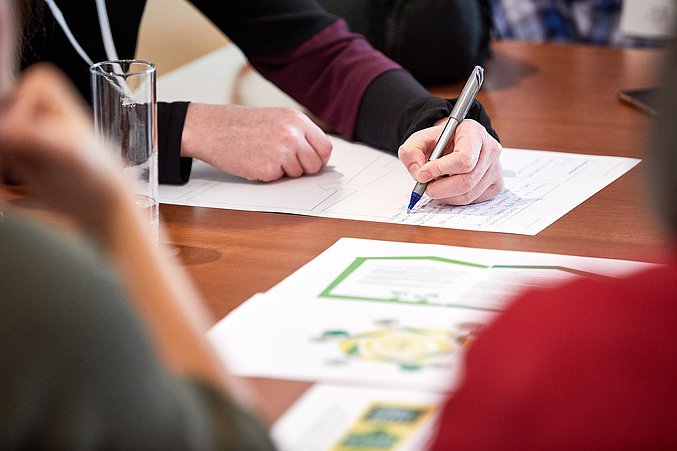
© René Arnold / Stiftung Kinder forschen
Working Group #2: Outcome Orientation
When addressing the subject of outcome orientation, organisations tend to focus on the effectiveness of their work and on the changes they initiate. The importance of outcome orientation within the development, implementation, and evaluation of projects in the non-profit sector has increased over the last few years. However, outcome orientation is neither a fast-working nor a budget-friendly tool in the area of monitoring and evaluation. Initiatives need to achieve a balanced cost-effectiveness ratio, particularly in smaller projects or fragile and complex organisational structures. This working group will discuss different ways of implementing outcome orientation as a strategic organisational development tool and examples of monitoring and evaluation methods for measuring the effectiveness of programmes.
Guiding Questions:
What form does your evaluation and monitoring take? / How do you measure the effectiveness of your programmes?
Do you measure different target groups in different ways?
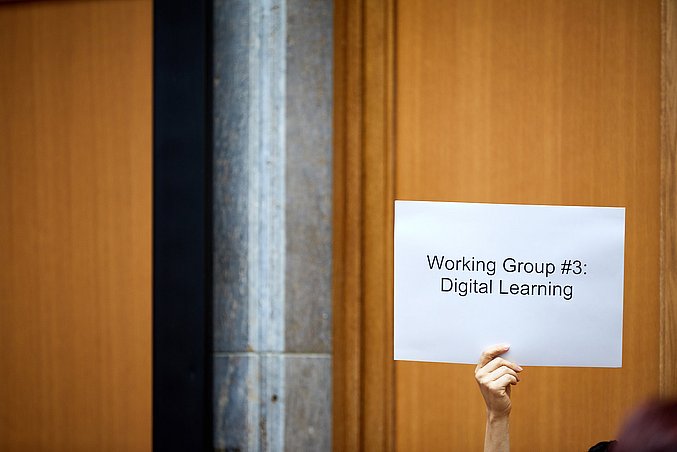
© René Arnold / Stiftung Kinder forschen
Working Group #3: Digital Learning
The world we live in, and thus our learning, is shaped more and more by digitalization. This development challenges traditional forms of education and calls for new learning content and methods. Adaptive courseware, audiovisual media, and serious games are only some examples of the variety of digital learning. It allows new ways of creative, individual, and collaborative learning. In this working group, we will discuss the potential and the core issues of digital learning related to STEM education. Furthermore, we will focus on practical experiences with different digital learning methods.
Guiding Questions:
What digital learning formats do you use and how? [alternative: learning courses, learning opportunities]
What potential do you see in digital learning opportunities?
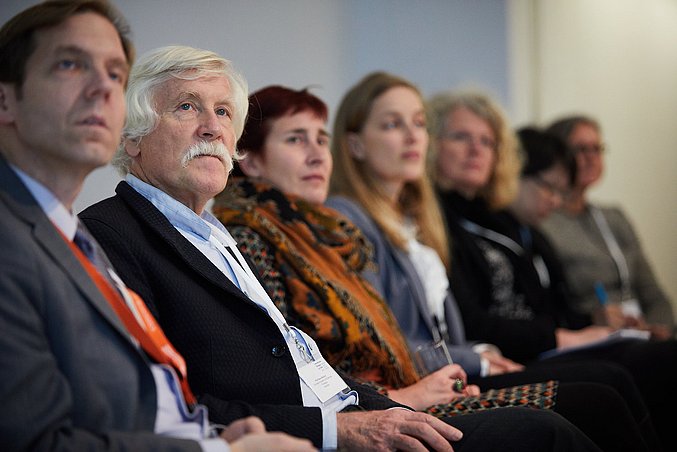
© René Arnold / Stiftung Kinder forschen
Working Group #4: Continuing Professional Development (CPD)
The dissemination and successful implementation of inquiry-based science education depends to a great extent on the concepts and quality of teachers’ continuing professional development (CPD). Therefore is it worth taking a look at experiences in this field in different parts of the world: What CPD formats for teacher trainers and teachers are being implemented by the initiatives represented at the conference? By what means do they strengthen the action competence of trainers and teachers? In what way do they enable and foster exchanges among them? What steps do the initiatives take to ensure the quality of their formats? The aim of this working group is to enable participants to become acquainted with different training arrangements and to gain ideas for their own practice.
Guiding Questions:
What adult education formats do you use?
How do you strengthen action competence?
How do you ensure exchanges between participants?
How do you ensure quality?